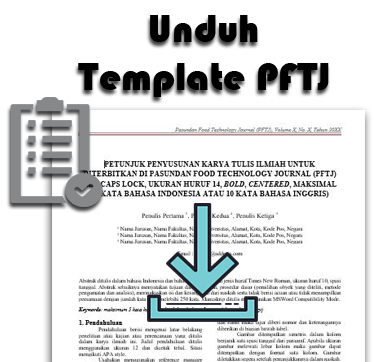PENGARUH SUBSTITUSI BENGKOANG TERHADAP KARAKTERISTIK KERUPUK
DOI:
https://doi.org/10.23969/pftj.v12i3.34801Keywords:
kerupuk, bengkoang, substitusi, makanan ringan tradisionalAbstract
Crackers are one of the types of traditional light snacks that are popular in Indonesia, known for their crispy texture and distinctive flavor, made from a tapioca flour dough mixed with ingredients such as shrimp, fish, or animal skin. They undergo a process of steaming, freezing, thin slicing, drying, and frying until cooked. The purpose of this study is to determine the effect of jicama substitution on sensory quality, seen from color, aroma, texture, and taste. The study was conducted in September–October 2025 at the Culinary Workshop, Department of Family Welfare Science, Faculty of Tourism and Hospitality, Padang State University. The method used was a pure experiment with a Completely Randomized Design (CRD) consisting of 4 treatments and 3 repetitions, namely jicama substitution of 0% (X0), 50% (X1), 60% (X2), and 70% (X3). A sensory test was conducted to assess product quality involving 50 semi-trained panelists. The data obtained were analyzed using ANOVA, followed by Duncan's test if the calculated F value > F table. The study results showed that jicama substitution had a significant effect on each treatment. Treatment X3 (70%) showed the highest score in the yellow color parameter (4.60), X3 (70%) showed the highest score in the characteristic fragrant jicama aroma parameter (4.04). X2 (50%) showed the highest score in the crispy texture parameter (4.82). X3 (70%) showed the highest score in the sweet-savory taste parameter (4.12).


















